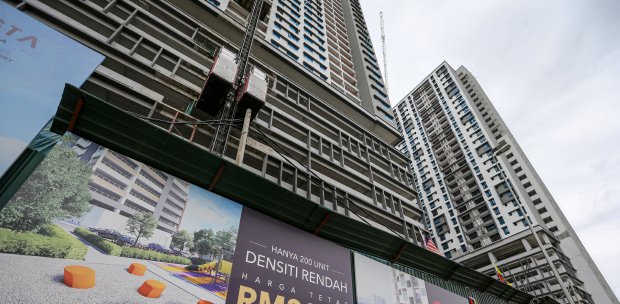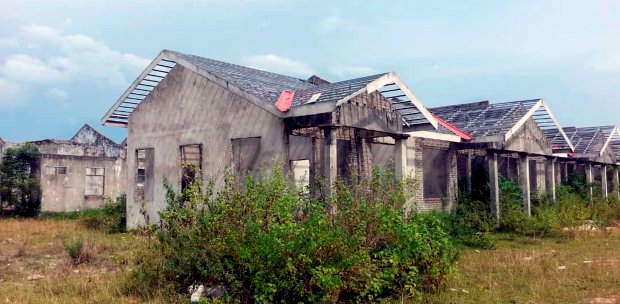IN February this year, Bank Negara Malaysia data suggested that Malaysia faces a shortage of affordable housing for the masses. It also suggested that houses in the country are “seriously unaffordable” by international standards.
Why would such a situation present itself in this country? With so much emphasis places on the Bottom 40 per cent (B40) of income earners and with so many agencies tasked with finding solutions for the housing conundrum, why does this matter still persist? Aren’t these agencies doing what they are supposed to do? Are they just marking time, doing the bidding of their political masters by making all kind of announcements that sound nice and politically correct? Is it a case of “cakap tak serupa bikin?”
I have read many announcements made by these agencies about the large number of affordable houses that are being planned in the pipeline. I believe that even if half of what they announce are actually built, we will not face such a serious shortage of houses that are actually affordable for those who really need them.
This matter is further compounded by the fact that so many residential units that are launched still remain unsold. Can you see the irony in this situation?
On one hand, we have a large number of people who want to buy houses, but can’t find any that are suitable to them. On the other hand, we have a large number of properties that cannot be sold, simply because there is no one interested in buying them.
What can we do to address this situation and improve the situation? In order for any suggestion to work, the government must get involved and there must be iron political will to make this happen. It cannot simply remain rhetoric anymore. The time to talk is over. It’s now time to do.
So what can be done? Here are some simple things we can do to address the situation:
1. It must actually be affordable
There really is no point in building properties that are actually unaffordable and labelling them as affordable. This label is not going to solve anything. It is simply going to make the situation even worse.
2. Define affordable
There must be a clear definition on what affordable actually means. Without this being clearly defined, every developer will go about building what they think is affordable, and those things will get labelled affordable. And then, when they don’t sell as well as predicted, everyone will scratch their heads wondering what goes wrong.
3. Affordable doesn’t mean the boondocks
We must understand that the B40, who these properties are being chiefly targeted at, will not buy the properties simply based on their prices. Accessibility is also an important criterion. We should start taking the location of these properties into consideration. They need to have reasonably good access to amenities, public transport etc.
4. National registry
We must develop a national registry of people who qualify for these affordable housing. This registry must be centralised, so that all data is accessible easily to all stakeholders. This registry must be able to track not just eligibility, but also preferences of the buyers. In this way, we can build the type of properties, in the preferred locations, based on actual supply and demand.
5. B40 friendly financing
During the heydays of the property market, i.e. 2010 to 2014, there were many creative financial solutions to help purchasers buy properties with very little money. Some of these schemes were so creative that you sometimes didn’t even need any money to buy a property. If we could be so creative to push the sales of the upmarket properties then, why can’t we now put our collective heads together to find creative solutions to help the B40 buy affordable houses?
6. Research
The most obvious reason this mismatch between demand and supply occurs is because there is very little research done to determine what the market is actually looking for. If we could conduct proper market research into this matter, perhaps we could narrow this gap to acceptable levels. In order for research to be properly done though, there needs to be precise, updated data available to all stakeholders. And this is currently lacking.
Malaysia has much hope for a bright future. The recently concluded election has given everyone new hope for a better tomorrow. It’s time we got our act together and started our journey into becoming a first world country. We can do this if we all put our minds and hearts into it. The authorities much chart the way. We are looking towards our leadership for guidance.
Happy hunting and may the force be with you.
Siva Shanker is a real estate practitioner who is passionate about the property market. His views are frank and honest. He tries to manage the labyrinth of the property market honestly while consistently maintaining a high standard of ethics in his practice of the profession. Siva welcomes feedback via [email protected].





